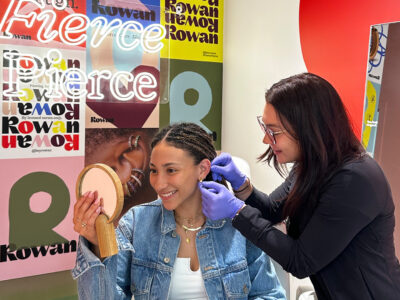Throughout the course of his career, Dr. Vladimir Pastouk has earned his reputation as a world-renowned dental professional who specializes in an unparalleled level of service and an attention-to-detail that is second to none. Based in Cleveland, Ohio, he uses his skills, his expertise, and his passion for helping countless patients with things like Invisalign treatment, dental acupuncture, ceramic implants, biological dental surgery, and much more.
One topic that Pastouk is particularly passionate about has to do with tongue-tie treatment. It’s something that he offers directly in his practice in Cleveland, and it’s important for a wide range of different reasons, all of which are worth exploring.
What is Tongue-Tie Treatment? Breaking Things Down
At its core, tongue-tie treatment is a particular type of dental surgery that involves cutting the lingual frenulum in a patient’s mouth – otherwise known as the tight skin that connects the tongue and the bottom part of the mouth.
Sometimes, children are born with an incredibly tight lingual frenulum. This can manifest itself almost immediately, particularly when it comes to the difficulty they often have with breastfeeding. If left unchecked, it can also lead to issues like blocked airways that make it difficult to breathe and even problems developing speech.
One of the things that Pastouk wants people to know is that this is actually far more common than most realize. Not too long ago, a study was conducted based out of Australia that took place over the course of three years. During that time, a professional screened every baby that was born in his facility. A standardized assessment tool was used to make sure that all data collected was of the same high quality.
Over those three years, there were 9,478 babies that were sampled. When everything was completed, it was found that an average of about 4.83% of babies born in a given year were tongue-tied to the point that they required some type of surgery or treatment to correct the issue. Not only that, but another 5% had signs of the condition but were eventually able to normalize and function more or less normally using standard management alone.
The numbers continue to get even more interesting as you further break them down. It was found that about 70% of those babies that were fully tongue-tied had an anterior tie. Only about 30% of the babies that were under observation had a posterior tie.
Additional Considerations About Tongue-Tie Treatment
Another variable that Dr. Vladimir Pastouk wants more people to be aware of involves the idea that testing for tongue-tie in babies is precisely that – a test that needs to be carefully performed by a medical professional. Many new parents, in particular, make the unfortunate mistake of assuming that they can collect all relevant information by simply having the baby stick their tongue out and observing any mobility challenges that may be present.
Not only is this the least precise way to actually look for this issue, it’s also a major contributing factor to why so many of these patients go undiagnosed for many years.
This isn’t just a mistake that parents make, either – sometimes medical providers collect data using the same inaccurate methods.
Having said that, there are certain warning signs that parents should watch out for that might help clue them into a large problem that is going on. One of them involves a child’s tongue that cannot poke out beyond the lips, regardless of how hard the child tries. The same is true of a tongue that cannot touch the roof of the child’s mouth.
Other signs include a gap in the child’s front teeth at the point of the lower jaw and when the tip of a child’s tongue looks almost heart-shaped.
There are external factors that parents should also be on the lookout for. If a mother experiences unusually sore nipples either during or after breastfeeding, this could be an indication that the baby is developing an issue with tongue-tie. The same is true if the mother has a compression mark on the nipple after breastfeeding or if the baby isn’t feeding as well as to be expected.
If any of these signs are present, it is in both the best interest of the child and the parents to have them checked out by a trained medical professional as soon as they’re able to.
As stated, this is just one of the many conditions that Dr. Pastouk has devoted himself to treating throughout his career. He began his professional training back in 1991 at the esteemed Kiev Medical University School of Dentistry in Ukraine. From there, he worked for a period of time at the University Hospitals of Cleveland. It was then that he decided to specialize in implants and cosmetics – topics that he was truly passionate about.
Throughout his educational career, he attended the Advanced Standing Program at the renowned College of Dentistry at Nova Southeastern University in Florida. Once he was there, he moved to Atlanta, Georgia, for a period of time. There, he trained extensively in modern dental implantology, along with bone grafting, for a full year. Around that time, he decided to return to Cleveland, where he has been located ever since.
In the end, babies who are “tongue-tied” can certainly suffer from a wide range of different issues if the condition is left unchecked. In addition to the immediate problems with breastfeeding, issues like blocked airways and even a general difficulty developing speech are not things that you should be taken lightly.
Due in large part to the fact that this is a condition that is more prominent than people realize, there are options available that people need to be aware of. Tongue-tie treatment is one of them, and it is something that Pastouk is proud to offer at his Cleveland clinic to anyone in need of assistance.
About
Dr. Vladimir Pastouk is proud to provide the Cleveland area with a comprehensive range of holistic dentistry services at his practice, Cleveland Center for Integrative Dentistry. In addition to delivering complete dental services to his patients, he is advancing the profession of dentistry with the development of the Glossodontics™ system of methods.
















